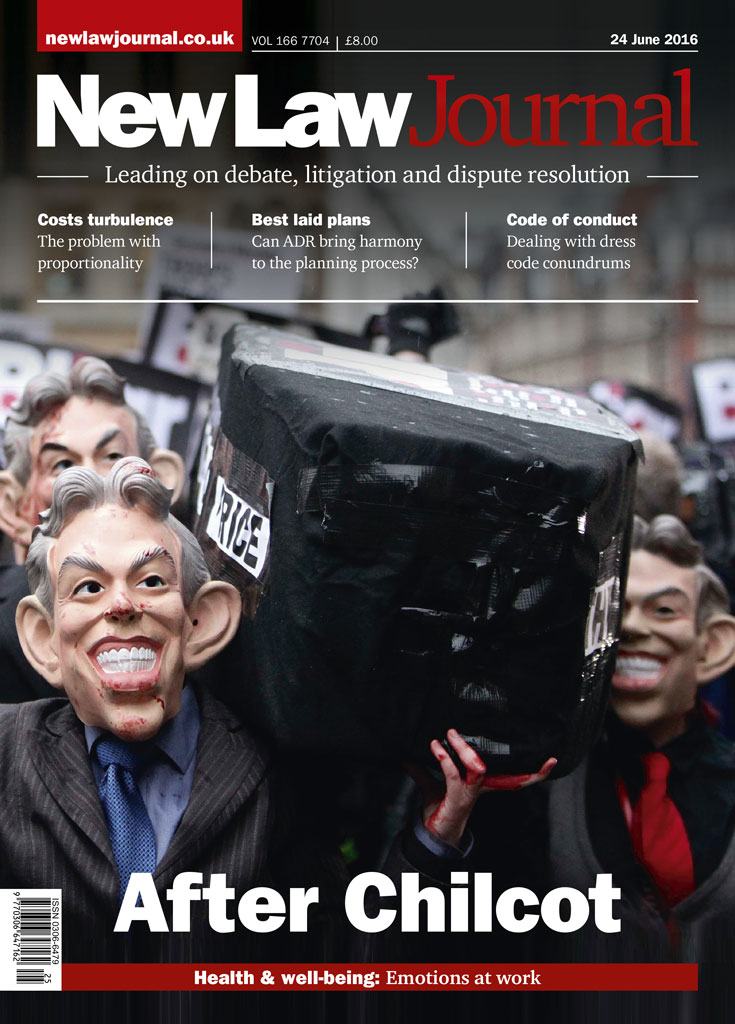
Richard Harrison reflects on how an instructing solicitor would have interpreted Lord Goldsmith’s opinion on the legality of the Iraq war
The Chilcot Report is damning. It specifically did not conclude that the war was unlawful, but it concluded that the circumstances in which it was decided that there was a legal basis for UK military action were “far from satisfactory”. So it is worth reflecting on its conclusions about the advice received by the government to justify the legality of going to war.
As a commercial litigation solicitor, I am used to obtaining and deploying the opinions of suitably chosen and properly instructed barristers. I am used to assisting clients come to a decision based on the terms in which those opinions are expressed. The government was required to do the same thing with the advice of its chief legal adviser the attorney-general, Lord Goldsmith QC. What therefore should have been made of Lord Goldsmith’s opinion on the legality of the Iraq war?
7 March
The “advice” dated 7 March 2003, was originally released under









